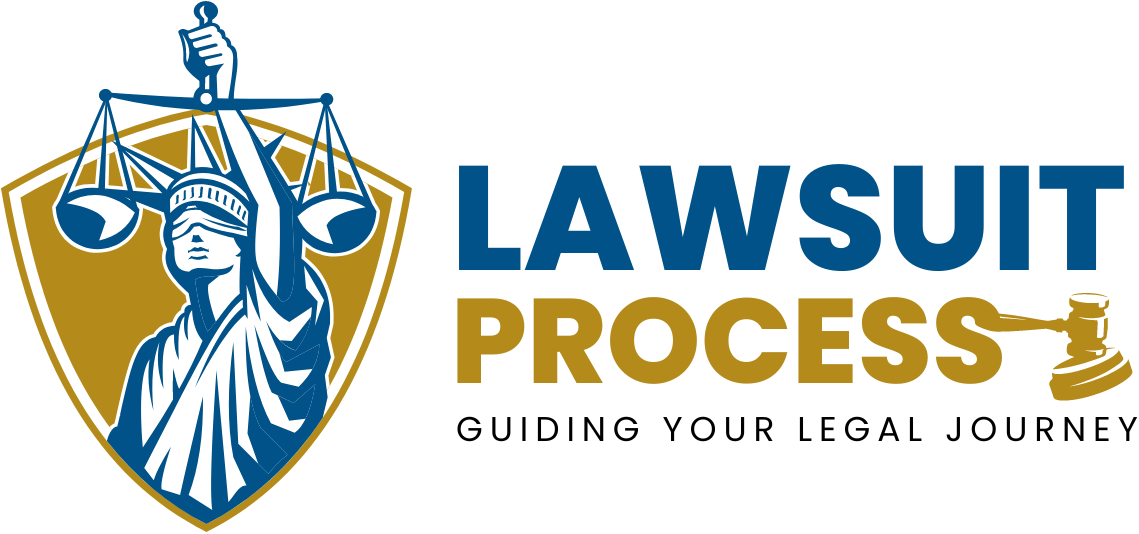Immigration law in the United States is a complex and dynamic field that affects millions of people each year. Among the various immigration procedures, the process of adjusting one’s immigration status is critical for individuals who want to transition from a temporary status (such as a visa holder) to permanent residency (commonly known as obtaining a green card). However, the process is not always smooth, and many immigrants find themselves facing challenges that can lead to delays or denials of their applications. In such cases, immigrants may find it necessary to initiate a lawsuit to challenge the decision or to compel action from U.S. Citizenship and Immigration Services (USCIS). This article provides a detailed overview of the immigration status adjustments lawsuit process in the United States.
Table of Contents
- What is Immigration Status Adjustment?
- Common Reasons for Immigration Status Adjustment Delays or Denials
- Types of Lawsuits in Immigration Status Adjustment Cases
- The Process of Filing a Lawsuit
- Potential Outcomes of a Lawsuit
- Conclusion
- 30 Frequently Asked Questions
What is Immigration Status Adjustment?
Immigration status adjustment refers to the process of changing an individual’s status from a non-immigrant (temporary) visa holder to that of a lawful permanent resident (green card holder). The process is governed by U.S. immigration laws and is typically handled by USCIS. The most common types of status adjustments involve family-sponsored immigrants, employment-based immigrants, and individuals who have been granted asylum or refugee status.
To be eligible for adjustment of status, an applicant must generally meet several requirements, including being physically present in the United States, having entered the U.S. legally, and meeting specific eligibility criteria based on their category of application. Despite meeting these criteria, complications may arise, such as prolonged delays or outright denial of the application. When these issues occur, individuals may have no choice but to file a lawsuit to resolve their situation.
Common Reasons for Immigration Status Adjustment Delays or Denials
There are various reasons why an immigration status adjustment application may be delayed or denied, prompting an applicant to consider legal action. Some of the most common reasons include:
- Administrative Delays: USCIS may take an excessive amount of time to process an application due to a backlog of cases, insufficient staffing, or the need for additional security checks.
- Request for Evidence (RFE): USCIS may issue an RFE if they believe that the application is missing necessary documentation or requires further clarification on certain points.
- Denial Based on Inadmissibility: An applicant may be deemed inadmissible due to criminal history, health-related grounds, prior immigration violations, or fraud.
- Errors in the Application: Mistakes or omissions in the application form or supporting documents can result in a denial or significant delays.
- National Security Concerns: In rare cases, USCIS may flag an application due to national security concerns, leading to additional scrutiny and potential denial.
When any of these issues arise, an applicant may consider filing a lawsuit, either to compel USCIS to make a decision (if the application has been unreasonably delayed) or to challenge a denial (if the applicant believes the decision was unjust).
Types of Lawsuits in Immigration Status Adjustment Cases
Mandamus Lawsuits
A mandamus lawsuit is a legal action filed in federal court to compel a government agency (such as USCIS) to perform a specific duty. In the context of immigration status adjustments, a mandamus lawsuit is typically filed when an application has been unreasonably delayed and the applicant seeks a court order to compel USCIS to make a decision.
To succeed in a mandamus lawsuit, the applicant must demonstrate the following:
- The applicant has a clear right to the action being requested (e.g., a decision on their application).
- USCIS has a clear duty to perform the action (i.e., USCIS is required to process and adjudicate status adjustment applications).
- There is no other adequate remedy available to the applicant (e.g., the applicant has exhausted all administrative remedies).
Mandamus lawsuits can be an effective way to expedite the processing of delayed applications, but they do not guarantee a favorable outcome. The court cannot compel USCIS to approve an application; it can only compel the agency to make a decision.
Administrative Procedure Act (APA) Lawsuits
An APA lawsuit is filed when an applicant believes that USCIS has denied their status adjustment application unlawfully or arbitrarily. The APA provides a mechanism for individuals to challenge agency actions that are “arbitrary, capricious, an abuse of discretion, or otherwise not in accordance with law.”
In an APA lawsuit, the applicant must argue that USCIS made a legal or procedural error in denying their application. For example, the applicant may argue that the denial was based on an incorrect interpretation of the law, that USCIS failed to consider relevant evidence, or that the agency’s decision was inconsistent with its own regulations.
Unlike a mandamus lawsuit, an APA lawsuit seeks to overturn a decision rather than compel the agency to act. If the court agrees with the applicant, it can remand the case to USCIS for reconsideration, or in some cases, directly order the approval of the application.
The Process of Filing a Lawsuit
1. Consult an Immigration Attorney
The first and most important step in filing an immigration lawsuit is to consult with an experienced immigration attorney. Immigration law is a highly specialized field, and the outcome of a lawsuit can depend on the specific facts of the case and the jurisdiction in which the lawsuit is filed. An attorney can help the applicant determine the best course of action, gather necessary evidence, and prepare the legal arguments for the case.
2. Exhaust Administrative Remedies
Before filing a lawsuit, the applicant must ensure that they have exhausted all available administrative remedies. This means that the applicant has completed all required steps in the immigration process, such as responding to RFEs, attending interviews, and filing any administrative appeals. In many cases, a lawsuit will not be entertained by the court if the applicant has not taken these steps.
3. File the Complaint in Federal Court
The next step is to file a complaint in federal district court. The complaint is a legal document that outlines the facts of the case, the legal basis for the lawsuit, and the relief being sought (e.g., an order compelling USCIS to make a decision or overturning a denial). The complaint must be filed in the appropriate federal district, which is typically the district where the applicant resides or where the USCIS office handling the case is located.
4. Serve the Government
After filing the complaint, the applicant must serve a copy of the complaint and a summons on the appropriate government officials. This typically includes the U.S. Attorney General, the U.S. Attorney for the district in which the lawsuit is filed, and the head of the relevant agency (such as the Director of USCIS). Proper service is critical, as failure to follow the correct procedure can result in delays or dismissal of the lawsuit.
5. Government Response
Once the government has been served, it has a certain amount of time (usually 60 days) to respond to the complaint. The government’s response may take the form of a motion to dismiss the lawsuit, an answer to the complaint, or in some cases, an offer to settle the case. If the government files a motion to dismiss, the applicant’s attorney will have an opportunity to file a response, and the court will then decide whether the case can proceed.
6. Discovery and Motions
If the lawsuit proceeds past the initial stage, the next phase is discovery. Discovery is the process by which both parties exchange information and evidence relevant to the case. This may include depositions, requests for documents, and written interrogatories. During this phase, either party may also file motions, such as a motion for summary judgment, which asks the court to decide the case based on the evidence without going to trial.
7. Court Decision or Settlement
After discovery is completed and any motions have been resolved, the case may proceed to trial or be decided by the judge based on the evidence presented. In many cases, however, the lawsuit is resolved before reaching this stage. For example, USCIS may decide to process the application or reconsider its decision in response to the lawsuit, leading to a settlement. If the case does go to trial, the judge will issue a final decision, which may include ordering USCIS to take specific action or remanding the case for further review.
Potential Outcomes of a Lawsuit
The outcome of an immigration status adjustment lawsuit can vary depending on the specific circumstances of the case. Some potential outcomes include:
- Compelled Decision: In a mandamus lawsuit, the court may order USCIS to make a decision on the application if it finds that the delay was unreasonable.
- Reversal of Denial: In an APA lawsuit, the court may overturn USCIS’s decision and remand the case for further consideration.
- Approval of Application: In some cases, the court may order USCIS to approve the application if it finds that the agency acted unlawfully in denying the request.
- Dismissal of the Lawsuit: If the court finds that the applicant has not met the legal requirements for a lawsuit, the case may be dismissed.
In Conclusion
The process of adjusting one’s immigration status can be challenging, especially when faced with delays or denials. When administrative remedies have been exhausted and no resolution is in sight, filing a lawsuit may be the best option for an immigrant seeking to secure their future in the United States. Understanding the different types of lawsuits available, the process of filing a lawsuit, and the potential outcomes can help individuals make informed decisions about how to proceed with their immigration status adjustment.
However, it is important to recognize that immigration law is complex, and the outcome of a lawsuit is never guaranteed. Anyone considering legal action in an immigration case should seek the advice of an experienced immigration attorney who can provide guidance and representation throughout the process.
30 Frequently Asked Questions
1. What is an immigration status adjustment?
It is the process of changing your immigration status from a temporary visa holder to a lawful permanent resident (green card holder) without leaving the United States.
2. Who is eligible to file for an adjustment of status?
Eligible applicants include immediate relatives of U.S. citizens, employment-based immigrants, asylum seekers, refugees, and certain special categories as defined by USCIS.
3. How long does the adjustment of status process take?
The timeline varies based on the category and USCIS workload, but it typically takes between 8 to 14 months on average.
4. What causes delays in immigration status adjustment cases?
Common causes include background checks, missing documentation, RFEs (Request for Evidence), USCIS backlogs, or administrative errors.
5. Can I sue USCIS if they delay my adjustment of status application?
Yes. If USCIS unreasonably delays your case, you may file a mandamus lawsuit to compel them to make a decision.
6. What is a mandamus lawsuit?
It’s a legal action filed in federal court asking the court to order USCIS to perform a duty they are legally required to complete, such as processing your application.
7. How do I know if my case qualifies for a mandamus lawsuit?
Your case must be unreasonably delayed, and you must have completed all required steps, such as responding to USCIS requests and attending interviews.
8. What is an APA lawsuit in immigration?
An APA (Administrative Procedure Act) lawsuit challenges a denial or decision made by USCIS that is arbitrary, unlawful, or contrary to established immigration laws.
9. Can an APA lawsuit overturn a USCIS decision?
Yes. If successful, a court may reverse the denial or order USCIS to reconsider the case according to correct legal standards.
10. How long does it take to resolve a mandamus or APA lawsuit?
It can take several months to over a year, depending on court schedules, government response, and the complexity of your case.
11. Do I need a lawyer to file an immigration lawsuit?
Yes. Due to the complexity of immigration law and court procedures, hiring an experienced immigration attorney is strongly recommended.
12. What if USCIS denies my adjustment of status application?
You may file an appeal, a motion to reopen, or pursue an APA lawsuit if the denial was unjust or unlawful.
13. Is there a filing fee for immigration lawsuits?
Yes. Federal courts require a filing fee for lawsuits, which is currently around $400–$500. Attorney fees are separate.
14. Can I still stay in the U.S. while my lawsuit is pending?
Yes, if your existing immigration status or pending application keeps you lawfully present. Always consult an attorney to avoid unlawful presence issues.
15. What is the difference between a motion to reopen and a lawsuit?
A motion to reopen is an administrative request to USCIS to review their decision. A lawsuit is a formal court proceeding to challenge USCIS’s inaction or denial.
16. What is the success rate for mandamus lawsuits?
While success varies by case, many result in USCIS taking action, such as scheduling an interview or issuing a decision. However, success is not guaranteed.
17. Can I work while my adjustment of status is pending?
Yes, if you have applied for and received an Employment Authorization Document (EAD) from USCIS.
18. Can USCIS deny my case after I file a mandamus lawsuit?
Yes. A mandamus lawsuit only forces USCIS to make a decision; it does not guarantee approval.
19. Is there a time limit to file an immigration lawsuit?
There’s no strict deadline for mandamus lawsuits, but courts expect a “reasonable delay” before considering the case. APA lawsuits must typically be filed within 6 years of the denial.
20. Can a denied adjustment of status lead to deportation?
Yes, in some cases. A denial may place you in removal proceedings. You should consult an attorney immediately if your application is denied.
21. What happens if USCIS ignores a court order?
If USCIS fails to comply with a court order, further legal action may be taken, including motions for contempt. This is rare but serious.
22. Can I travel while my adjustment of status is pending?
Only if you have been granted Advance Parole. Traveling without it can result in denial of your application or bar re-entry.
23. How much does it cost to file an adjustment of status application?
The USCIS fee for most applicants is approximately $1,225, including biometrics. Legal fees are not included.
24. Can I include my spouse or children in my lawsuit?
If they are also affected by the same USCIS inaction or denial, they may be included as co-plaintiffs. Your attorney can advise you based on your case.
25. What kind of evidence strengthens an immigration lawsuit?
Proof of delay, communication with USCIS, RFEs and responses, and a strong case history. Legal arguments must show harm caused by the delay or denial.
26. What is judicial review in immigration lawsuits?
Judicial review allows federal courts to examine agency decisions and determine whether they follow the law and proper procedure.
27. Does suing USCIS affect future immigration applications?
No, suing USCIS should not negatively impact future applications. The lawsuit is about enforcing your legal rights, not retaliation.
28. Can I sue if my green card was revoked?
Yes. If you believe the revocation was unlawful or arbitrary, an APA lawsuit may be filed to challenge the decision.
29. What is the role of the federal judge in these cases?
The judge reviews your complaint, decides if the agency acted within the law, and may issue an order directing USCIS to take specific action.
30. Can a lawsuit speed up my green card approval?
Possibly. A mandamus lawsuit can push USCIS to act, which may result in faster processing. However, approval still depends on the merits of your case.










